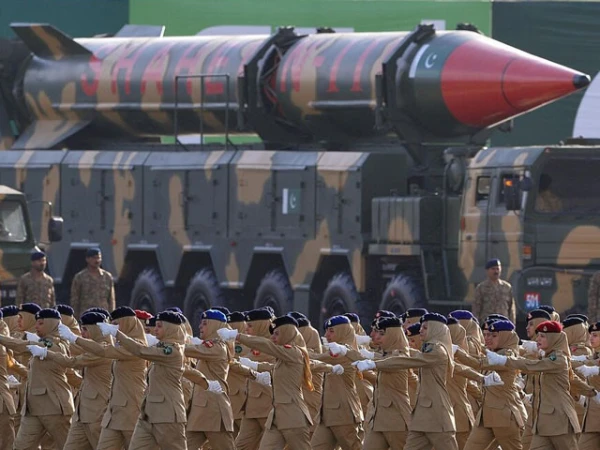Washington, D.C: John Finer, the U.S. Deputy National Security Adviser, has expressed concerns over Pakistan’s missile capabilities, stating that even the United States is not beyond their reach.
Finer highlighted that Pakistan is developing long-range ballistic missiles capable of striking targets far beyond South Asia, including the United States. He emphasized that these missiles could potentially be equipped with nuclear warheads, further escalating the risks.
U.S. Sanctions on Pakistani Entities
In a related development, the U.S. State Department recently imposed sanctions on four Pakistani entities for allegedly aiding in the development of ballistic missiles. These sanctions fall under Executive Order 13382, targeting entities involved in the proliferation of weapons of mass destruction.
Concerns Over Strategic Intentions
Finer remarked that Pakistan’s advancements in missile technology raise doubts about its strategic objectives, describing Islamabad’s behavior as a potential threat to global security.
Pakistan’s Response
The Pakistani Foreign Office strongly condemned the U.S. sanctions, labeling them as unfair and discriminatory. A spokesperson stated that Pakistan’s strategic programs are designed solely for national defense and to maintain regional stability in South Asia.
They argued that such actions disrupt the balance of power and have serious implications for regional and global security. Pakistan also reiterated its commitment to non-proliferation principles, calling the sanctions an attempt to undermine its sovereignty and strategic capabilities.
Strategic Context
Pakistan views its missile program as a vital national asset, essential for safeguarding its independence and ensuring regional peace. Officials criticized the U.S. for employing double standards, citing instances where other nations were granted exemptions for military technologies.
Broader Implications
The recent sanctions and statements from U.S. officials highlight growing tensions between the two countries, with Pakistan asserting its right to develop strategic defense systems while the U.S. calls for greater oversight and restraint.
This development underscores the delicate balance in South Asia’s security landscape and its potential impact on international relations.







